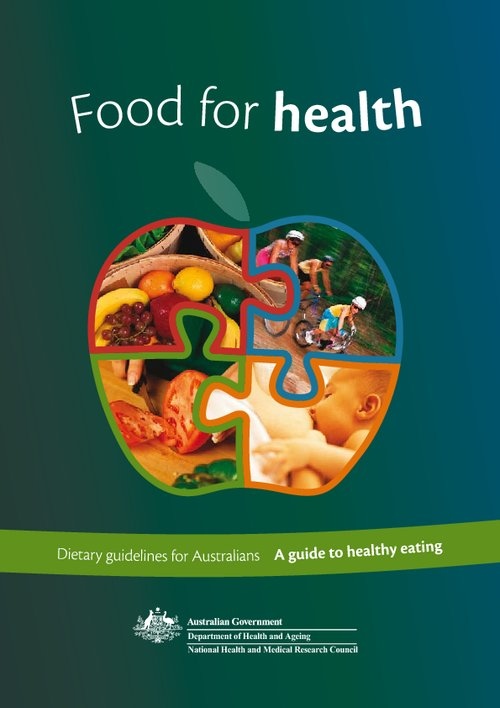Content Sections
It’s at least a step in the right direction when health authorities around the world give recognition to the fact that diet and lifestyle are major contributing factors in all the major diseases that kill us, especially cancer, heart disease, diabetes, obesity and osteoporosis. These health authorities are busy, especially at this time of year, pushing out guidelines and advice preaching to us about how we should live more healthily, the aim being, it seems, to lessen the ever-increasing financial burden on healthcare systems, and, hopefully, affording us a better quality of life.
Government diet and lifestyle campaigns
Enter, the UK’s National Health Service’s (NHS) recently launched ‘Change4Life’ campaign. But there’s also the US Department of Agriculture (USDA) ChooseMyPlate, the Australian Food for Health, and the French government (thought to have one of the best healthcare systems in the world) showcase for their national nutrition and health advice under the banner ‘Manger Bouger’, or ‘Eat Move’ in English.
Why you should cut down on carbs
Whilst the lifestyle advice in terms of activity and movement is generally spot on, some of the nutritional advice, in our opinion, leaves a lot to be desired. Our greatest concern is in the area of carbohydrate intake, where the emphasis is still on eating large quantities of grains despite the obesity and diabetes epidemic sweeping the Western world. Admittedly the advice includes use of wholegrains instead of fast-burn, starchy carbs, but even wholegrains still burn to sugar in the body. They just take a little longer doing it and at least deliver more vitamins, minerals and fibre whilst they do so.
We see three important reasons (yes, there are others!) why people should eat fewer grain-based carbs, found particularly in bread, pasta, rice and noodles, even if it’s wholegrain or brown. These are:
- Their effect in raising blood-sugar. This may especially be a problem where people are regularly consuming carb-based snacks between main meals
- High consumption of these relatively low-nutrient carbs encourages people to eat fewer all-important vegetables, and
-
Around 12% of people are sensitive or intolerant to very substantial amounts of gluten we find today in grain-based foods. On-going high level exposure in sensitive individuals leads to a myriad of problems ranging from ‘leaky gut’, to malabsorption, IBS, coeliac disease (now affecting around 1% of the typical Western population, but with only 15% of these cases being diagnosed) and colon cancer.
We’re not saying that wholegrain, starchy carbs are necessarily bad, but what we advocate is that we should get most of our carbs from vegetables and salad, not from bread, pasta, noodles, rice and the like. It’s worth remembering that carbs, even the complex ones, must be eaten in the right proportions for your individual needs where they offer a good energy source. In excess — and here’s the rub — we argue government advice generally promotes excess, they lead to excess weight, obesity, insulin resistance, metabolic syndrome and diabetes. These are the very diseases that government advice intends to fix! It’s not called the ‘sugar/wheat belly’ for nothing. Excess sugar in the body ends up contributing to inflammation and inflammation is the basis for all chronic disease. The message is simple: cut the number of carbs in the diet and you cut the sugar in your body – by cutting the sugar, you reduce the fire of inflammation and you cut chronic disease, which includes obesity. As our experience shows: those of us who’ve reduced carbs in our diets, have reaped the ‘lean’ rewards.
Not enough protein
The various guidelines promote between 6 to 12 portions a day of bread, cereals, rice, pasta and noodles, but then in some, as little as one portion of protein a day. While one portion of protein might stop you from suffering symptoms of protein deficiency, recent nutritional science, which actually draws also on our evolutionary heritage as hunter-gatherers, suggests considerably more protein has numerous other benefits, given its role as the main building block for the body. You need it to build lean tissue, for cellular growth and repair and for healthy DNA.
Governments keeping Big Food sweet
The UK’s recently launched, Change4Life campaign, has already been slammed in the media for some of its ‘supermeal’ ideas. It's a humble cauliflower cheese ‘supermeal’ that has earned the campaign the label as “half-baked and dangerous”. A meal that can be made fresh from fairly healthy ingredients, has been transformed into a bit of a Frankenstein-food by using a packet sauce that contains a myriad of additives and preservatives, as well as a genetically-modified ingredient! The US sample menus rely heavily on carbohydrates and foods with a high starch content, and some of their recipes include large proportions of sugary foods (1/2 cup of honey, 1/3 cup of dark brown sugar and 1/3 cup of maple syrup all in the same recipe!). Also many of the recipes suggest the use of canola oil that is now predominantly genetically modified in the US. The Australian guidelines start off well encouraging people to eat plenty of vegetables, legumes and fruit but lets itself down enormously on page 10 where it advises children between the ages of 4 and 7 to eat more ‘Extra Foods, e.g., cakes, pies, soft drinks, lollies etc.' than protein sources such as lean meat, fish, poultry, nuts and legumes.

The French healthcare system definitely seems top of this pile as their sample menus prove, but then they reassure people that carbohydrates can’t make you fat and have no limit on daily servings! The carbohydrate issue aside, the meals suggested for a week are beautifully varied, with lots of green leafy vegetables included and proteins. Although they are included in the menus, there isn’t the same emphasis placed on eating multiple servings of carbohydrates every day as with the UK, US and Australian guidelines.
All of the guidelines also point out that a healthy lifestyle should include physical activity, and eating according to your energy needs. They also focus on reducing salt intake, alcohol, sugary foods, and to drink plenty of water. This advice is obviously a no brainer.
We see the footprint of ‘Big Food’ all over government guidelines, otherwise why aren’t there warning labels all over products that contain wheat and gluten? In the UK official figures are up to 12% for people with gluten sensitivity. That’s 12 people out of a hundred – sizeable in anyone’s book, but unofficial rates are more likely nearer to 20 in 100. And we haven’t even mentioned those with dairy intolerance…
A soon-to-be-released ANH initiative
As a campaign organisation, working with some of the leading scientists and doctors in the field of natural health, we feel we have a responsibility to bring the public advice that isn’t distorted by Big Food interests.
With this in mind, the rising cases of obesity, the increased reliance on fast/junk food and the ever-increasing prevalence of chronic illness, we are launching a new health empowerment initiative shortly. This will replace our current Food4Health campaign, and will be an ongoing, easy-to-read portal for reliable, accurate health information. It will be packed full of tips and ideas on how to empower your life by living healthily and in tune with our natural heritage. Split into three sections, it’s all about preventative medicine! It’s coming soon, watch this space and in the mean time be healthy — naturally.








Comments
your voice counts
21 April 2012 at 4:04 pm
I'm surprised that you didn't mention the evils of corn syrup! To the un-initiated it doesn't sound like a carbohydrate does it? It is very common in soft drinks, often in large quantities. It is sweet and most importantly - it is cheap! Big food strikes again and the politicians (fools to a man - or woman!) continue to kiss the anatomy of the food industry because of the lovely donations to political parties. The way the politicians behave it makes one wonder if donations go to individuals also - maybe in nice sinecure directorships in the benefitting companies. Surely not?
Your voice counts
We welcome your comments and are very interested in your point of view, but we ask that you keep them relevant to the article, that they be civil and without commercial links. All comments are moderated prior to being published. We reserve the right to edit or not publish comments that we consider abusive or offensive.
There is extra content here from a third party provider. You will be unable to see this content unless you agree to allow Content Cookies. Cookie Preferences